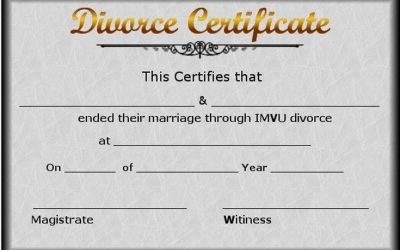Court Marriage for Muslims 2025: Navigating Interfaith Marriages and Legal Challenges
Table of Contents ▼
Can Muslims marry non-Muslims in civil court? Let’s break down how court marriage for Muslims works in interfaith unions.
One of the most frequently asked questions among Muslim and non-Muslim couples is whether they can legally marry in civil court. While religious traditions may shape the union between two people, court marriage for Muslims allows for a legal marriage recognized by the state, which is especially useful for interfaith couples.
In this blog, we’ll guide you through the process of court marriage for Muslims, the legal considerations, religious perspectives, and practical advice for couples seeking to marry across faith lines.
Understanding Court Marriage for Muslims
A court marriage for Muslims refers to a marriage that is recognized by the state but not necessarily by religious institutions. For Muslim and non-Muslim couples, this provides a solution to marry legally, even when one partner follows Islam and the other does not.
While the nikah (Islamic marriage) is central in Islam, it may not always be possible for Muslim and non-Muslim couples due to religious restrictions. Court marriage for Muslims provides an alternative to ensure both partners are legally bound, regardless of their religious affiliations.
Legal Frameworks Across Different Jurisdictions
The legality of court marriage for Muslims with non-Muslims depends on the country in which the marriage is being performed. Laws surrounding interfaith marriages vary, and some countries have relaxed their rules, allowing Muslim and non-Muslim couples to marry under civil law.
For example, recent legal reforms in the UAE have allowed Muslim and non-Muslim couples to marry under civil law, bypassing Sharia law that previously posed significant barriers for interfaith unions. Such legal reforms have opened doors for Muslim/non-Muslim couples, although local residency and documentation requirements must still be met.
It is crucial for couples to understand the legal landscape of the country they wish to marry in and seek professional advice to ensure they meet all necessary legal criteria.
Religious Considerations vs. Legal Realities
While court marriage for Muslims provides a legal route for interfaith unions, Islamic jurisprudence has guidelines on interfaith marriages that may influence couples’ decisions. Although interpretations can differ between Islamic schools of thought, the general rules are as follows:
- Muslim men are allowed to marry women from Abrahamic faiths (Christians and Jews), referred to as “People of the Book.”
- Muslim women, however, traditionally face stricter rules and are expected to marry Muslim men.
These religious guidelines often create barriers for interfaith marriages, but court marriage for Muslims sidesteps the religious restrictions imposed by traditional Islamic law. This makes civil marriage a valuable option for Muslim and non-Muslim couples seeking legal recognition of their union.
Practical Considerations for Muslim + Non-Muslim Civil Marriages
Couples considering court marriage for Muslims should take the following practical considerations into account:
Documentation Requirements
For a court marriage for Muslims, several documents are generally required, including:
- Valid passports or government-issued identification
- Birth certificates (often requiring apostille or legalization)
- Proof of no impediment to marriage (certificate of single status)
- Divorce decrees if applicable
- Translations of documents if required
Missing or incomplete documentation can delay the process. To avoid these pitfalls, couples should consult with professionals who can help them navigate the paperwork requirements of their chosen jurisdiction.
Legal Implications
A court marriage for Muslims has legal consequences that couples must understand, such as:
- Property and inheritance laws
- Custody arrangements and child support
- Divorce proceedings
- Tax and financial implications
- Recognition of the marriage in both the marriage jurisdiction and home country
To navigate these legal matters successfully, it is highly advisable for couples to consult with legal experts familiar with both the country of marriage and their own residence country.
Planning Timeline for Civil Muslim Marriage
If you’re planning a court marriage for Muslims abroad, start early to ensure all documentation and legal requirements are met. Here’s a suggested timeline:
- 3-6 Months Before: Research marriage options and gather essential documentation.
- 2-3 Months Before: Choose the jurisdiction and begin the process of document authentication.
- 1-2 Months Before: Submit applications for marriage and arrange for travel.
- 2-4 Weeks Before: Confirm all requirements with local authorities to ensure everything is in order.
- Arrival: Arrive several days before the ceremony to handle any unexpected issues.
Proper planning and early preparation will minimize the chances of any last-minute complications.
FAQs
Will our court marriage for Muslims be recognized when we return home?
The recognition of a court marriage for Muslims depends on the country where the couple resides. While most countries accept legally performed marriages abroad, some may require additional registration or may not recognize marriages that contradict local laws.
Can we incorporate religious elements in our civil ceremony?
Yes, many jurisdictions allow couples to include religious or cultural elements in their civil ceremonies. While the legal portion must adhere to state regulations, couples can often personalize their ceremony by incorporating meaningful vows, readings, or symbolic gestures.
What if our families disapprove?
Family disapproval can be a significant challenge for interfaith couples. Professional consultants often help couples navigate these difficult conversations, offering strategies for compromise that allow the couple to honor their family’s wishes while following their own path.
Conclusion
Court marriage for Muslims and non-Muslim couples offers a practical and legal solution for those wishing to marry outside the traditional religious framework. As more countries embrace civil marriage options, the process for interfaith couples has become more accessible.
While navigating religious, legal, and family complexities can be challenging, court marriage for Muslims helps ensure that couples have the legal rights and protections they deserve. With careful planning, proper documentation, and expert guidance, interfaith couples can successfully formalize their union and build a strong foundation for their future together.
If you’re considering a court marriage for Muslims, reach out to us today for expert guidance and support through the entire process.


